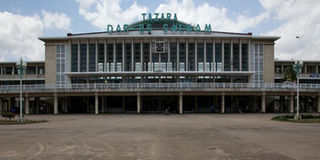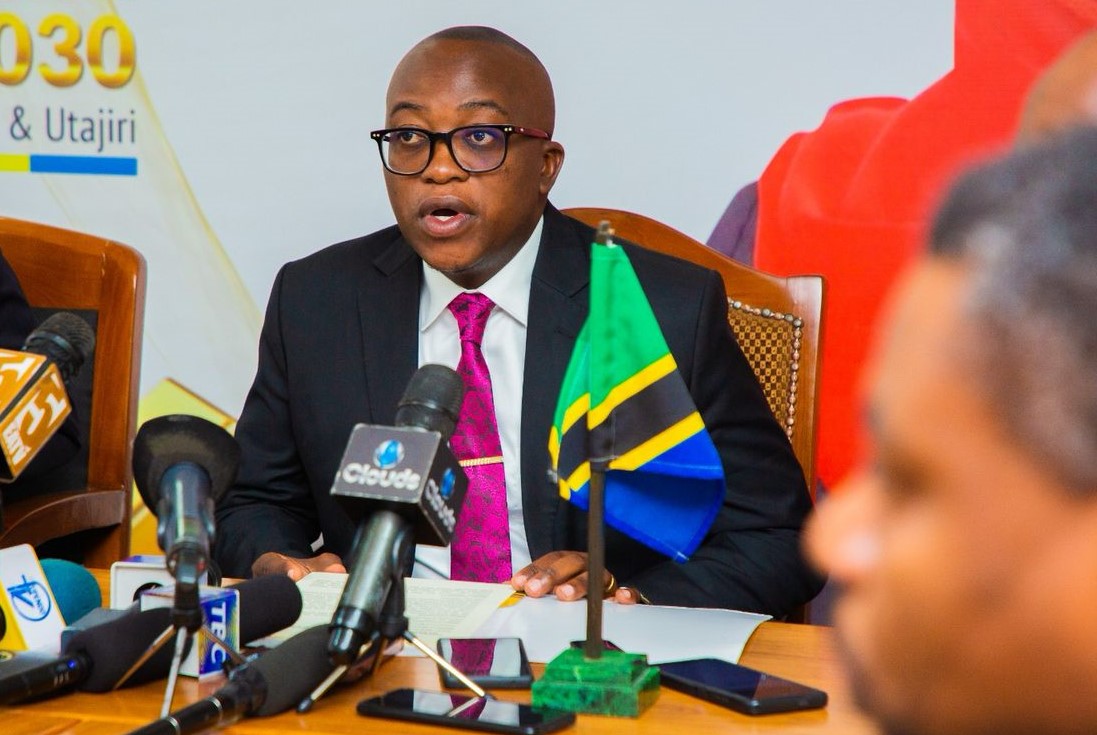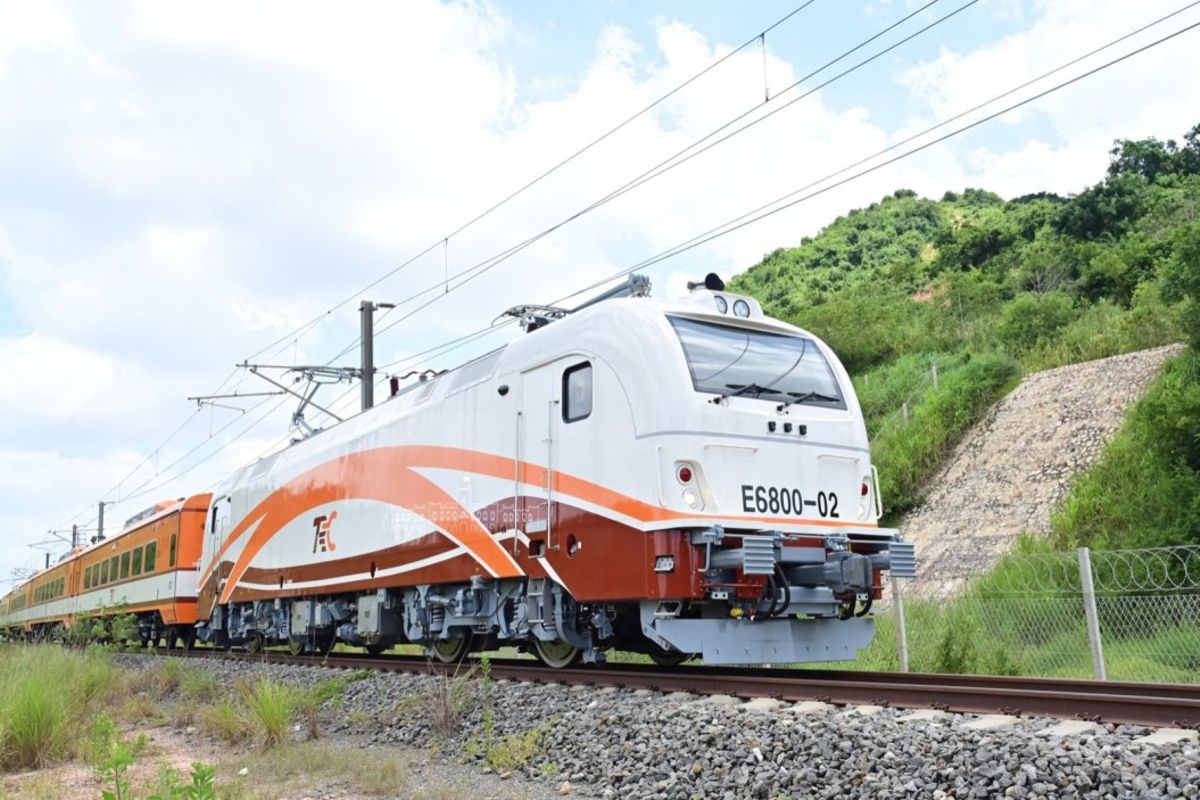China to take over Tazara in new plan

Tazara Headquarter in Dar es Salaam.
What you need to know:
- A technical team from Tanzania, Zambia and China is putting together details of the plan whose proposals include reducing the bloated Tazara workforce.
Dar es Salaam. China is to take over the management and operations of Tanzania-Zambia Railway Authority (Tazara), in a major plan that will herald privitisation of the struggling corporation, The Citizen can reveal.
A technical team from Tanzania, Zambia and China is putting together details of the plan whose proposals include reducing the bloated Tazara workforce.
Tanzania and Zambia would also be required to review their domestic laws to provide for preferential provisions in the running of Tazara, with a view to attracting more private players.
A working government document seen by The Citizen indicates that China was also looking to leverage its role in the railway line to push for the establishment of the Bagamoyo Port.
It describes the proposed privitisation plan as a turnaround strategy for the landmark 1,860km single-track railway line that was built in the early 1970s by China as a cold-war era gift to Tanzania and Zambia.
According to the document, a consensus has been reached among the three parties to handover Tazara to China Railway as early as September this year when a technical agreement should be ready for signing.
China Railway is a company which operates the Asian country’s vast national railway network for commuter and freight transport. The company was formed in 2013 and oversees the services via several smaller companies in a model it hopes to replicate here with Tazara if it indeed takes over.
The privitisation plan was discussed last week—from 9 to12 May—when a tripartite meeting was held in Dar es Salaam to draw the points of consensus and set in motion the final technical agreement.
Chief Secretary John Kijazi represented Tanzania in the talks while secretary to the Zambian Cabinet Roland Msiska represented his country. In China’s delegation, which included officials from China Railway, was headed by Liu Junfeng who is deputy director general of his country’s ministry of Commerce.
The teams reviewed findings of a technical study of Tazara by the Third Railway Survey and Design Institute (TSDI). The China-based group prides itself as “a Grade-A large-scale comprehensive survey and design corporation.”
According to the document, Mr Junfeng said Tazara’s return to efficient and profitable operations would bear the growing friendship between China and Africa. “It will be acknowledgement of its founding fathers Julius Nyerere, Kenneth Kaunda and Mao Tse-Tung,” he noted.
Some 11 consensus points were drafted after the meeting, pointing to a clear picture that the countries have agreed to a Chinese injection of technical and financial resources to restore Tazara’s lost glory.
“The Chinese, Tanzania and Zambian sides all agree that the current form of management and operation shall be changed and commercial operation shall be introduced to realise the revitalisation and sustainable development of Tazara,” reads part of the working report.
The report adds that Tanzania and Zambia have consented to the Chinese establishment of a new management and operation system. “Both governments will delegate responsibility to the revitalised Tazara for the daily operations and management.” The structure, it said, would adhere to “conventional and good corporate government practices.”
However, the Chinese are not only interested in injecting funds in the stuttering railway line but are keen to play a much bigger role—providing strategic management and superior technical operations to make Tazara a commercial flagship project in the East and Southern Africa economic blocs.
The report binds Tanzania and Zambia to clear all Tazara’s outstanding debts that include statutory deductions and suppliers’ arrears. The two countries will also be required to send home some of their employees to match the needs of the new structure.
“Tanzania and Zambia will do their best to ensure Tazara is provided with preferential policies and legal instruments to make it commercially viable,” reads the report.
With little prospects for a profit in Tazara operations in the short run, the countries agreed to increase volumes of bulk goods and cargo transported through Tazara while Zambia undertakes to connect the line to its local railway network.
The next crucial meeting of the parties will take place in China in the next few weeks, it emerged, with China handing over the lead negotiation role to China Railway while Tanzania and Zambia will be represented by the relevant ministries.
Last week during the closed-door talks, the Transport permanent secretary, Dr Leonard Chamuriho, told The Citizen that a clear picture of the revival strategy would be known after the China meeting.
“Today we were in a preparatory meeting ahead of the ministerial meeting slated for November where a binding agreement shall be decided,” the PS said then.
He acknowledged that Tazara was on the rocks but said the government was committed to turning things around. Sources at the ministry told The Citizen that about $370m (Sh740 billion) was required for the revitalisation plan of the corporation.
Reached for comment, a source at the Chinese embassy in Dar es Salaam who spoke on condition of anonymity said the plan has been long coming, noting that China was now ready to help turn around the ailing railway line.
Should the plan take-off, it would be the first time in Africa for China to directly run a railway project. At the moment, China Railway Construction Corporation is involved in the construction of standard gauge railway lines in Kenya, Ethiopia and Nigeria.
A consortium of Chinese companies are on course to land the job for the upgrade to standard gauge of Tanzania’s 1000km central railway line at a whopping cost of $9 billion.
The central line project will include an additional 1500km of new railway lines connecting the Dar es Salaam Port to landlocked countries of Rwanda, Burundi and DR Congo.


